Cognitive Development Normal Building Vocabulary Worksheets for Ages 6-9
5 filtered results
-
From - To
Enhance your child's cognitive development with our engaging Building Vocabulary Worksheets, designed specifically for ages 6-9. These worksheets foster essential reading and comprehension skills while expanding vocabulary through fun, interactive activities. Children will explore various topics, improving their ability to understand and use new words in different contexts. Our user-friendly worksheets are perfect for parents and teachers looking to support early learners in a meaningful way. Watch as your child's confidence and language skills grow, opening up new avenues for communication and learning. Download and start exploring these invaluable resources today to set a strong foundation for your child's educational journey!
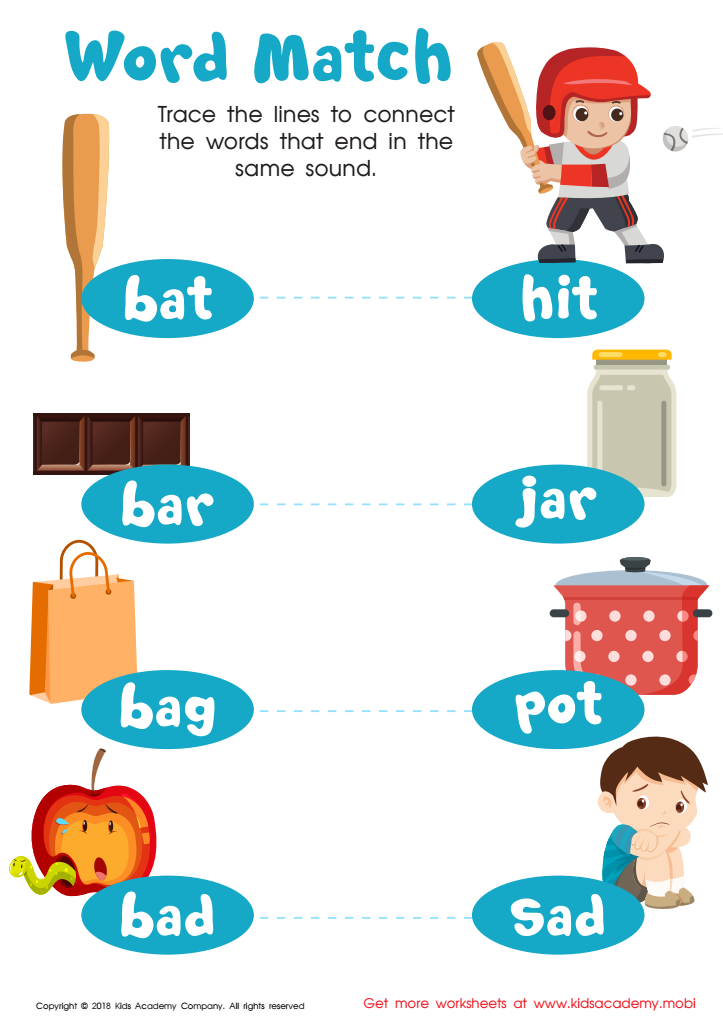

Word Match Reading Worksheet
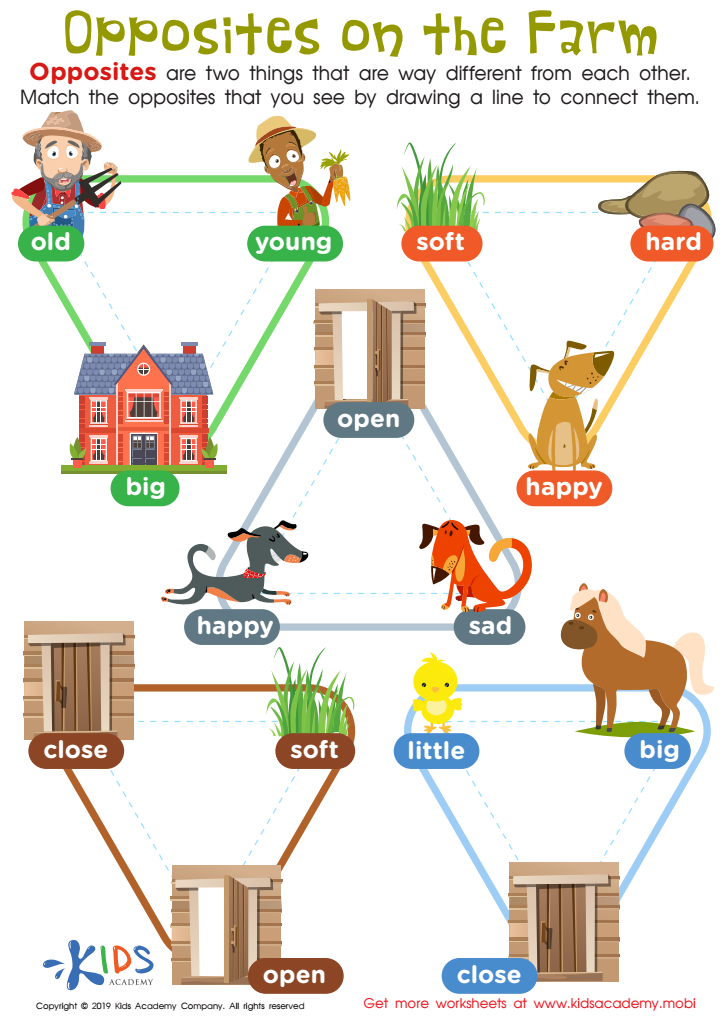

Opposites on the Farm Worksheet
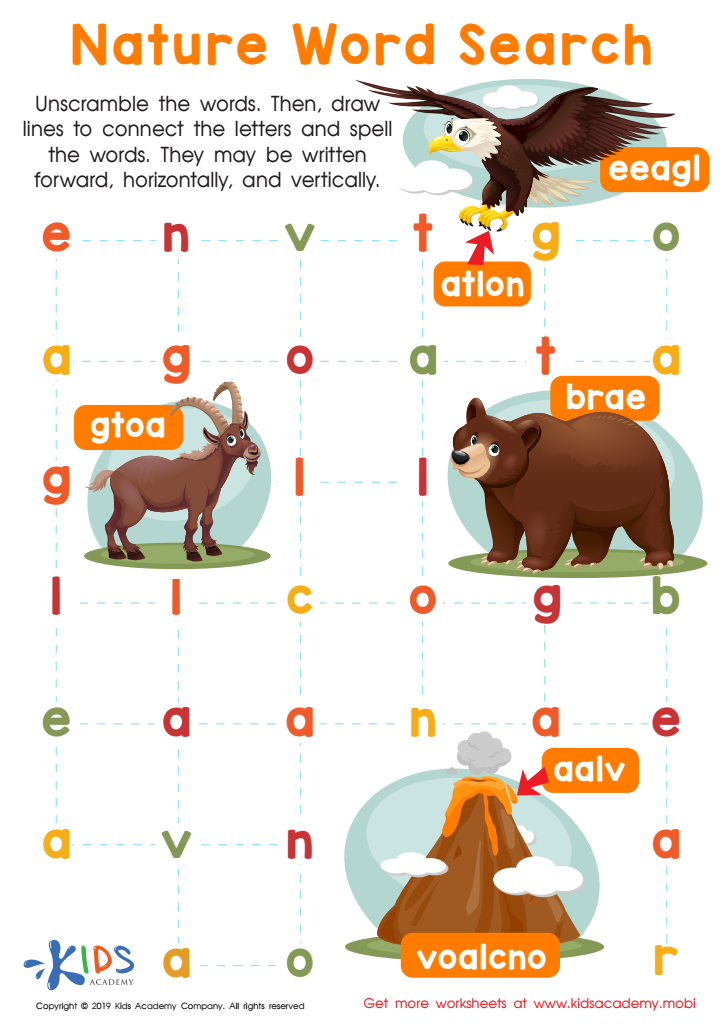

Nature Word Search Worksheet
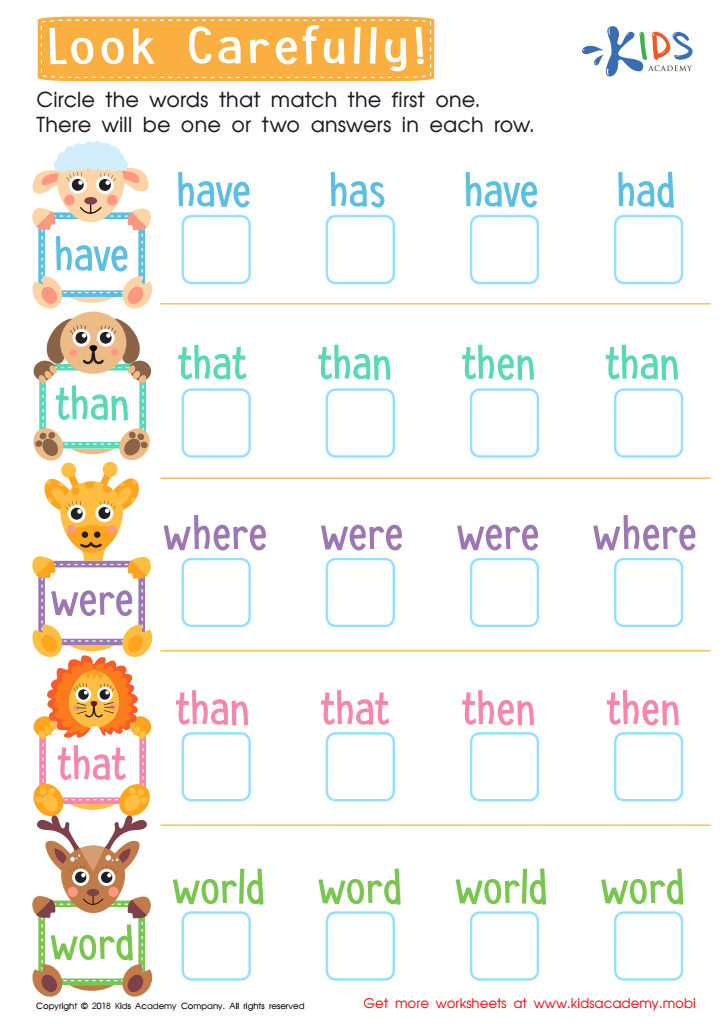

Look Carefully Worksheet
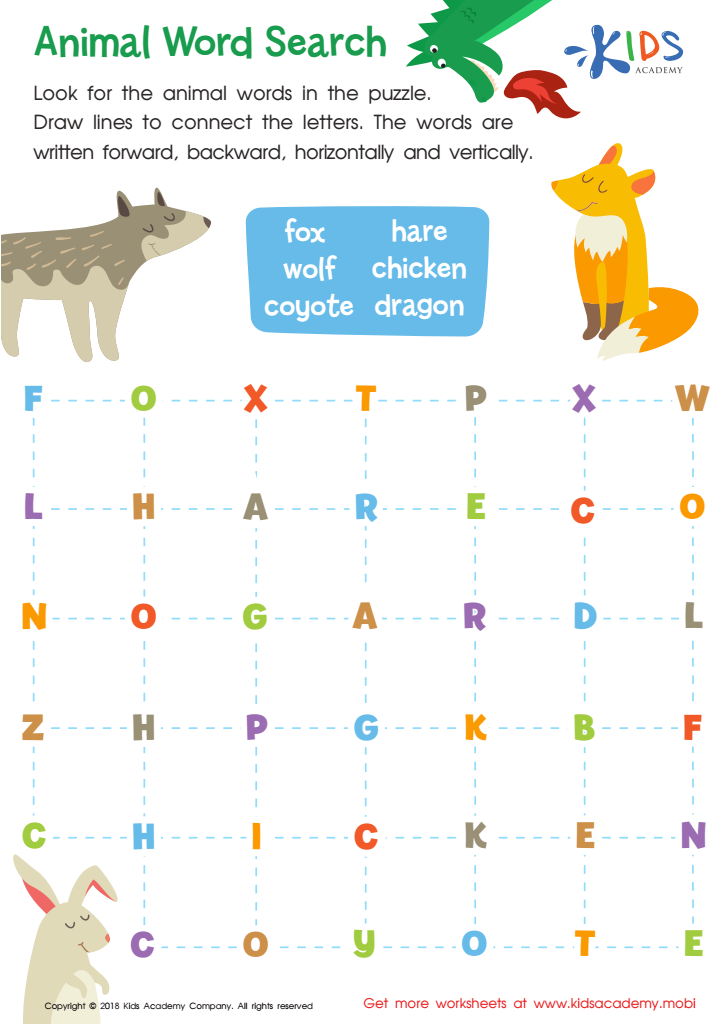

Animal Word Search Worksheet
Cognitive development and vocabulary building are crucial elements of a child's learning journey, especially between the ages of 6-9. During this stage, children's brains are rapidly developing, and nurturing their cognitive skills can lead to enhanced academic performance and social interactions. A strong vocabulary not only facilitates better communication but also aids in comprehension and critical thinking—skills essential for success in school and life.
Parents and teachers should prioritize vocabulary development as it directly influences a child's ability to express thoughts, feelings, and ideas. Engaging activities such as reading together, playing word games, or discussing new topics stimulate curiosity and encourage children to explore language. This exposure allows kids to build connections between words and concepts, enhancing their understanding of the world.
Furthermore, a well-developed vocabulary sets the foundation for reading comprehension, writing skills, and overall confidence in school. Children with a rich vocabulary are more likely to engage in classroom discussions and participate actively, fostering a positive learning environment. Therefore, by focusing on vocabulary and cognitive development, parents and teachers can create a holistic approach to education, preparing children for future academic endeavors and nurturing a lifelong love for learning.
 Assign to My Students
Assign to My Students































